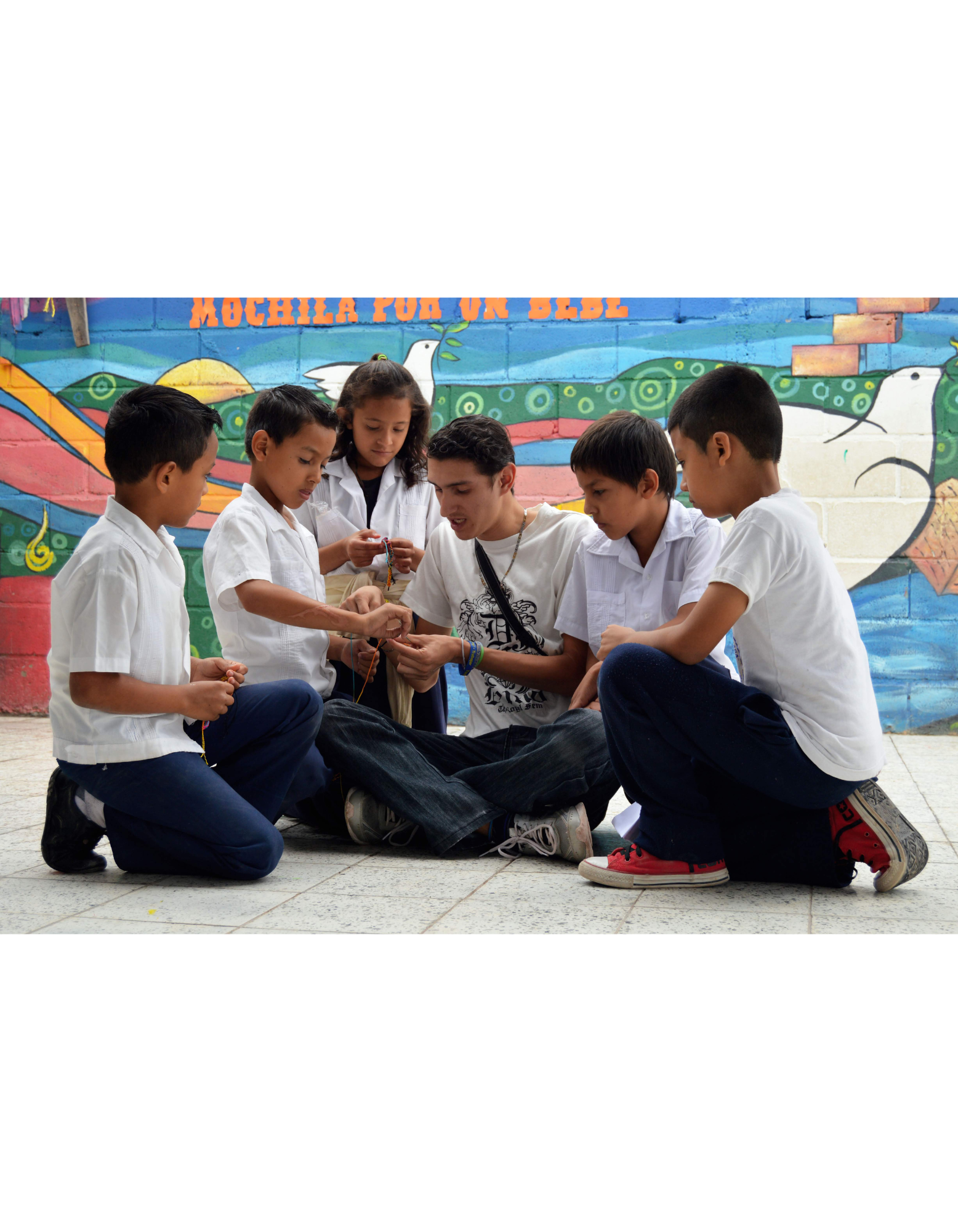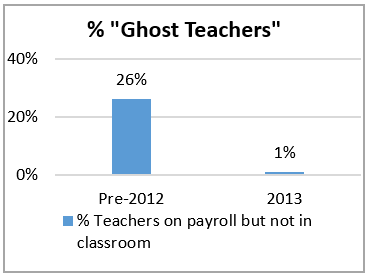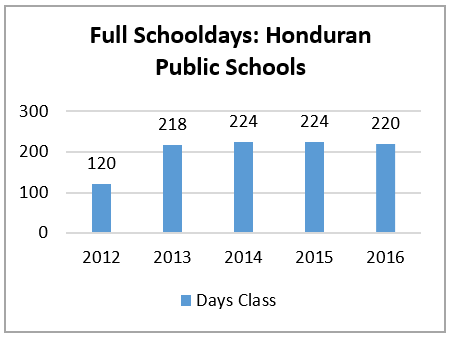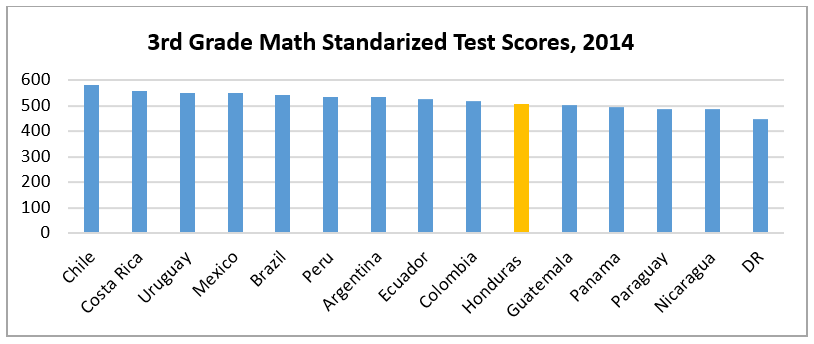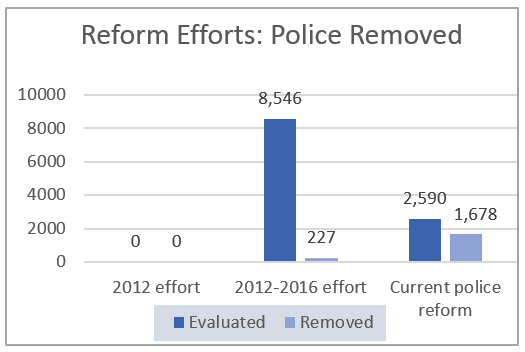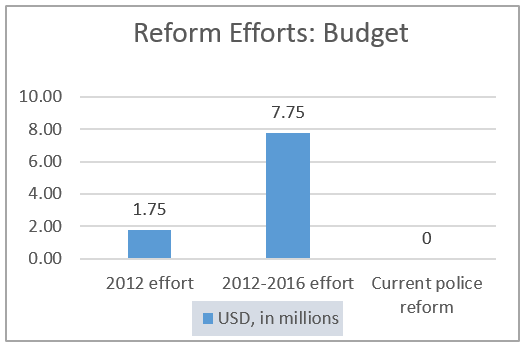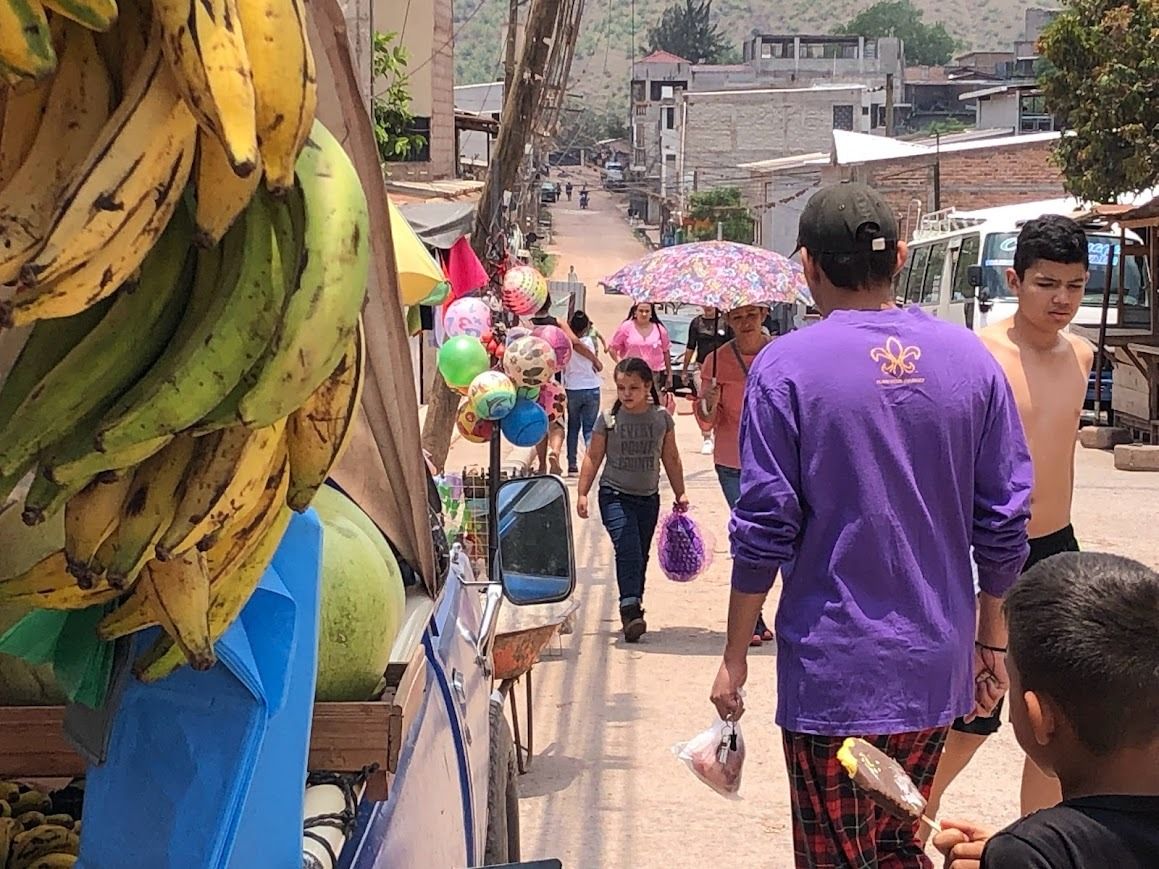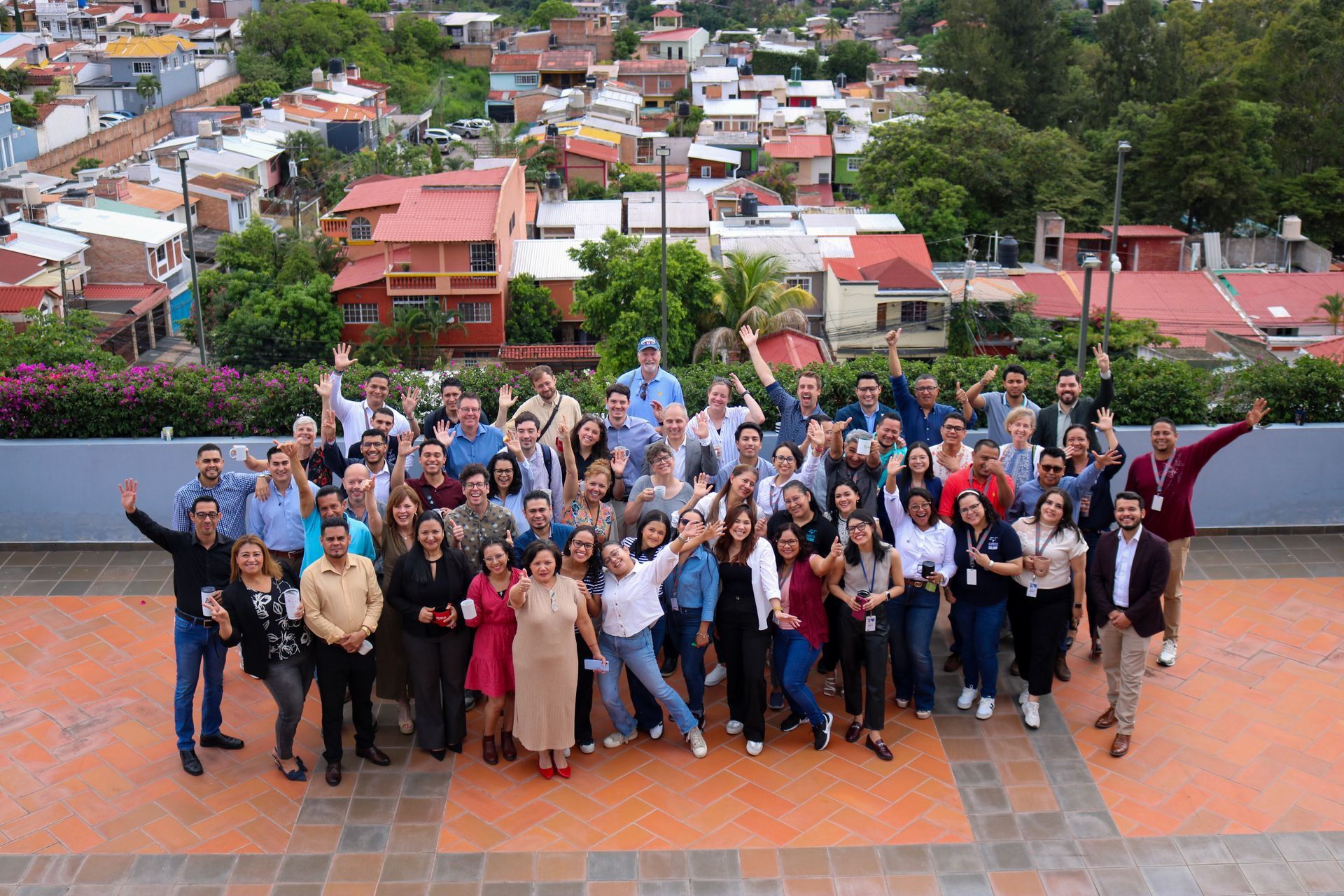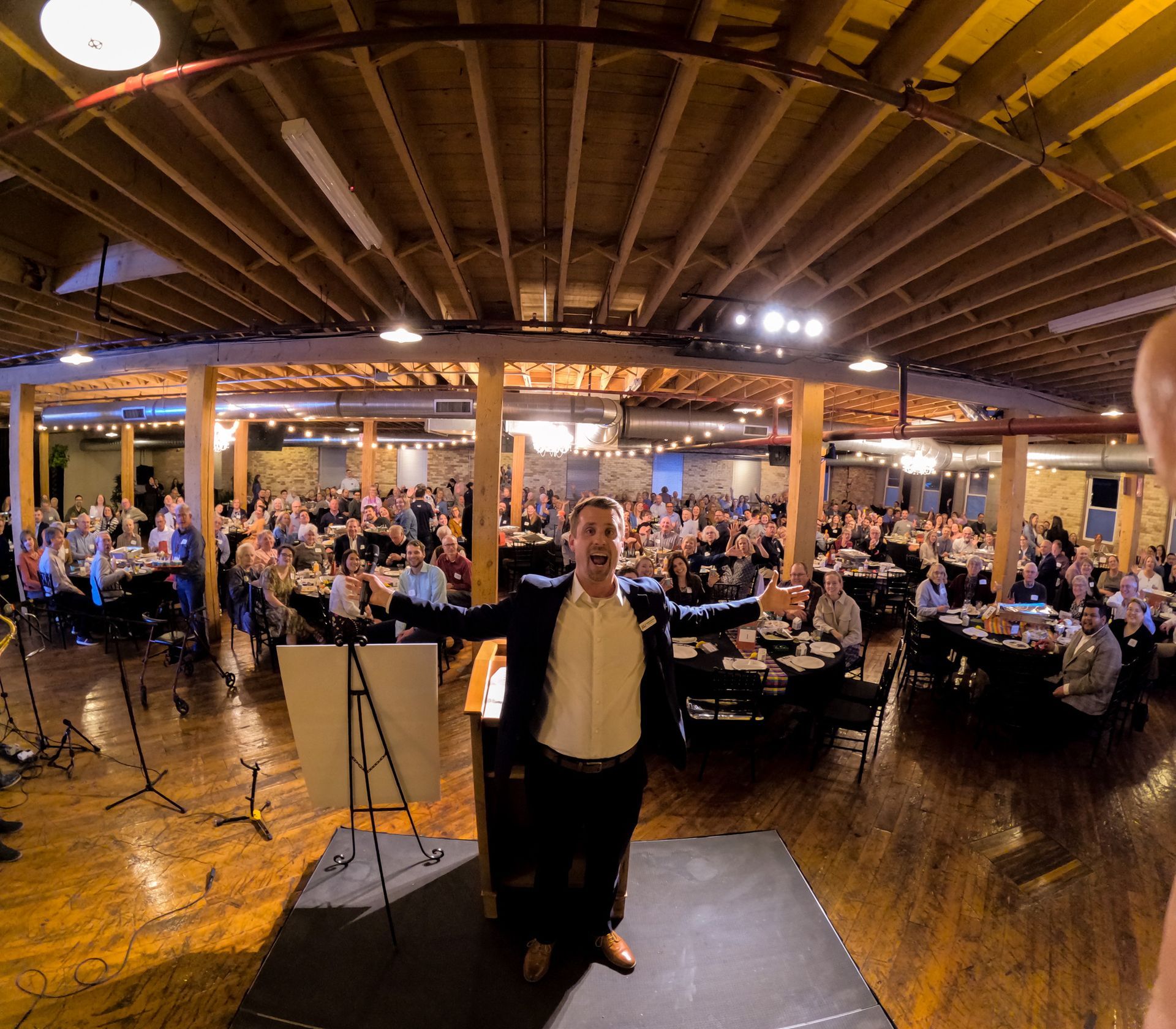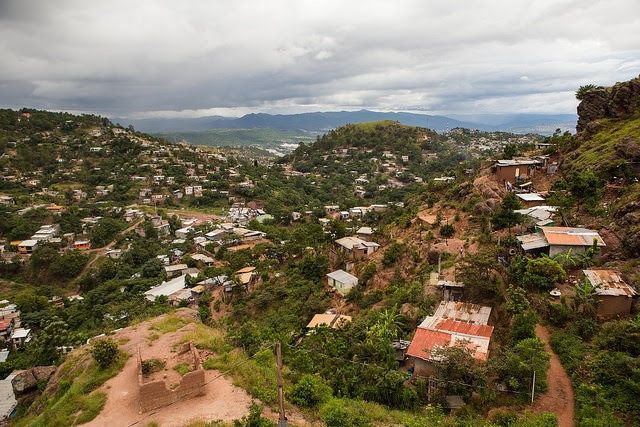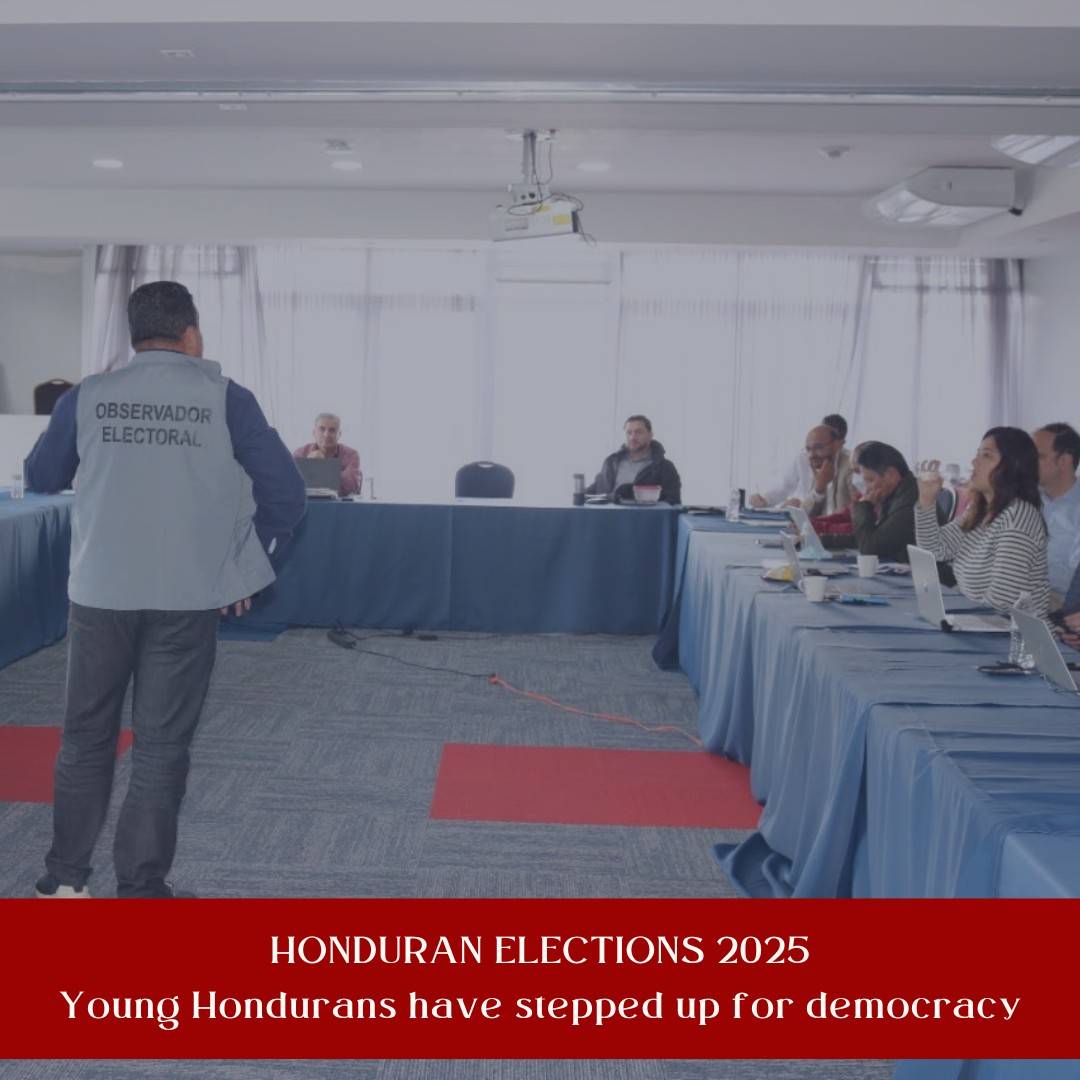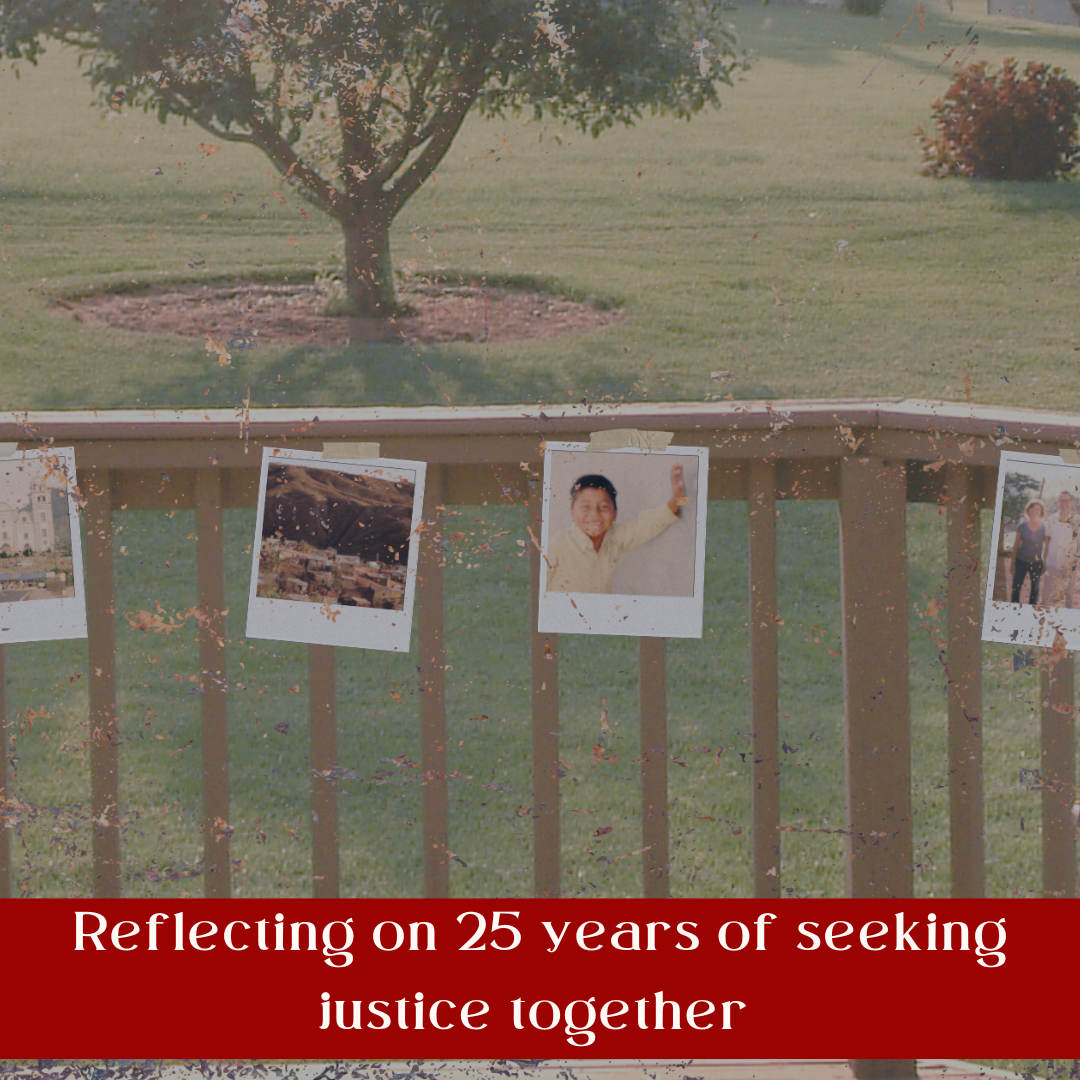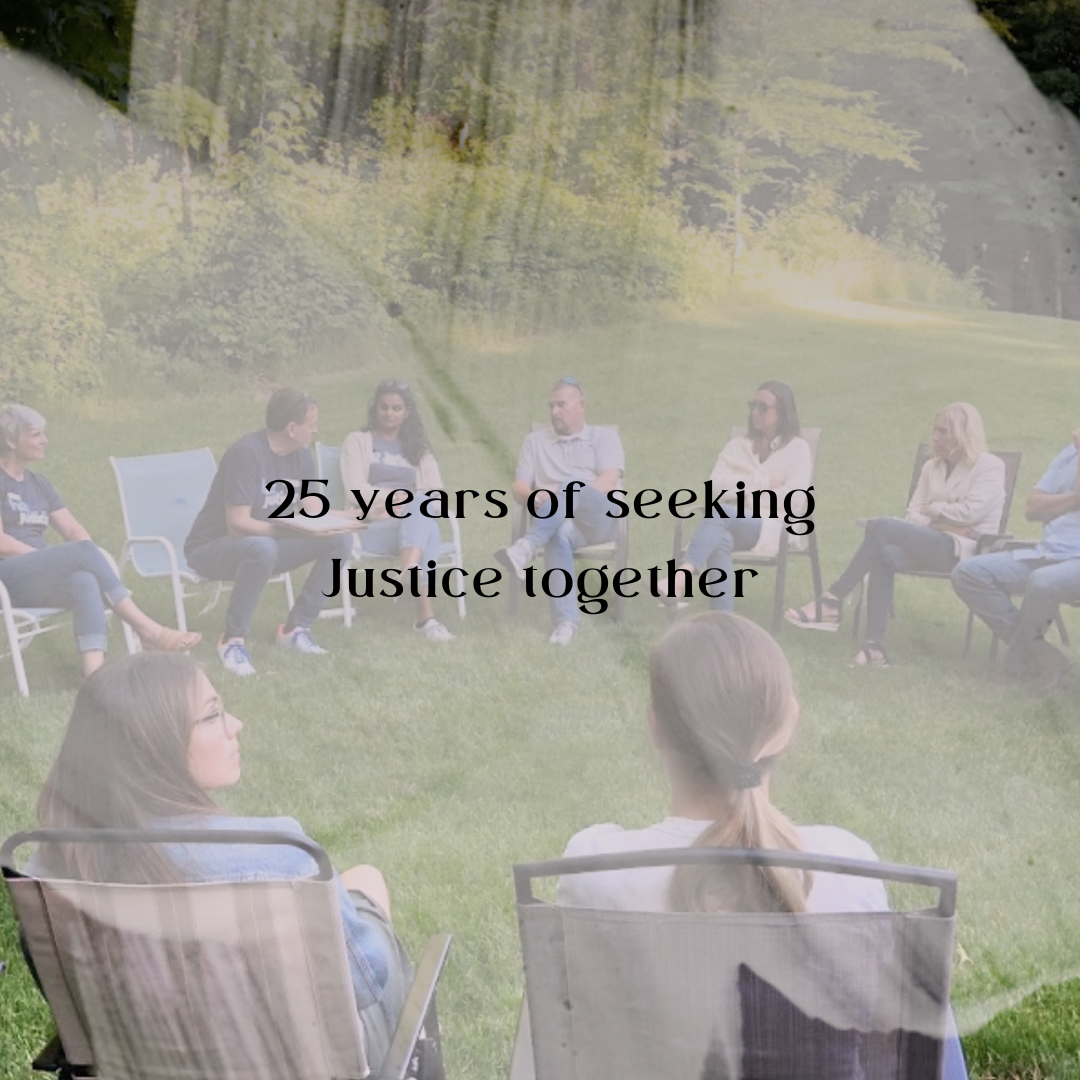December 11, 2016
An “on-the-ground” perspective from Honduras’ leading civil society organization working on matters of anti-corruption and citizen security
DECEMBER 2016
Honduras saw measurable advances in security and transparency in 2016, giving the country reasons for hope.
PUBLIC SECURITY:
- After peaking at 86.5 per 100,000 inhabitants in 2011, Honduras’ homicide rate decreased to under 60 per 100,000 in 2016. In the past year, crime victimization has also decreased from 20.5% to 16.4%.
- 17 drug-traffickers involved in organized crime were arrested and extradited to the United States in 2016. Five of these individuals were former police officers.
EDUCATION:
- Honduran schools met for 200 days for the fourth consecutive year after ten years of averaging only 120 days of school per year.
- A 2014 UNESCO study showed Honduran children’s mathematics scores improved by five places in Latin American standardized test rankings [i].
HEALTH:
- The Honduran government invited the United Nations to purchase medicines on its behalf, significantly reducing opportunities for corruption and ensuring more medicines are available in Honduran hospitals.
POLICE REFORM:
- 1,678 corrupt police officers have been removed from the Honduran National Police, including two-thirds of the highest-ranking officers.
As significant as these developments are, they have been overshadowed by emblematic cases of corruption and violence:
- Renowned environmental activist Berta Cáceres was murdered in March. While six arrests have been made in the case, the intellectual authors of the crime remain at large.
- The pilfering of hundreds of millions of dollars from the Honduran Social Security Institute has resulted in multiple arrests, but just one guilty sentence. The majority of suspects are still awaiting trial.
- The President’s push to run for re-election under a new Constitutional Amendment has raised questions about the legality of the move and the intentions of the party in power.
These emblematic cases illustrate a history of weakness in Honduran public institutions. International aid packages tend to respond to this weakness by overemphasizing the role that governments and international cooperation play in strengthening Honduran institutions. However, recent achievements in Honduras have largely been due to an increasingly active civil society that is working to strengthen Honduran institutions and transform Honduran society. The US should increase support for civil society’s work in these areas. In doing so, the benefit will be felt not only in Honduras, but also throughout the complex chain of commerce, drugs, and migrants that tie the two countries together.
CIVIL SOCIETY EFFORTS COMBAT CORRUPTION IN HONDURAS
- Civil society coalition Transformemos Honduras has led investigations into the Department of Education and the Department of Health since 2010, prompting significant improvements in the sectors’ transparency and effectiveness
- Civil society’s pressure, underscored by thousands of Hondurans taking to the streets to protest corruption, resulted in an independent, international oversight body that will investigate high-level cases of corruption
EDUCATION
HEALTH
In Honduras’ weak public health sector, investigation by civil society coalition Transformemos Honduras, alongside member organization Association for a More Just Society (ASJ, formerly known as AJS), revealed falsified medicine orders, ransacked medicine warehouses, and elites illegally peddling influence to win lucrative government contracts. Transformemos Honduras and ASJ recommended detailed improvements, and the department has responded with a marked increase in transparency and accountability.
- The health sector has adopted a fiduciary trust overseen by the United Nations Office for Project Services and monitored by ASJ to manage medicine purchasing. This trust increases transparency and social oversight and assures lower-cost and higher-quality medicine.
- Fifty-nine people, including the former minister of health, are facing criminal charges related to corruption in the public health sector.
- The government has increased its investment in medicines and health care equipment by 50%, allowing for greater coverage of care.
TRANSPARENCY INTERNATIONAL AGREEMENT
Since 2013, the
Transparency International chapter in Honduras, the
Association for a More Just Society
(ASJ), has pressed the Honduran government to commit to a comprehensive audit of its most corruptible institutions. Immediately after his inauguration on January 28, 2014, President Hernandez signed a document committing his government to ASJ’s external evaluation and monitoring [iv]. Benchmark performance and transparency scores have already been delivered for the departments of Education, Security, Health, Infrastructure, and Property Registration, summarized below:
These scores represent the percentage of compliance with transparency and management standards laid out in Honduran law. In other words, the Infrastructure Sector was only complying with 25.7% of legislation regarding purchasing, human resources, access to information, and other indicators.
Each institution, in response to the benchmark score, has created a detailed plan for improvement under the supervision of ASJ, who tracks the institutions’ advancement along selected metrics. This public accountability has led to the removal of “ghost” employees, increased vigilance in purchasing and contracts, and improved data collection and management.
MACCIH
The MACCIH was born out of citizen outrage at the embezzlement of $200 million from Honduras’ Social Security Institute. Thousands of Hondurans marched in the streets demanding an independent, international investigative body similar to Guatemala’s lauded CICIG, and ASJ and other members of civil society offered detailed proposals for the institution. In April 2016, the Honduran government and the Organization of American States (OAS) responded with the “Support Mission against Corruption and Impunity in Honduras” or MACCIH.
Though still in its infancy, MACCIH shows promise in investigating and prosecuting corruption and pushing for institutional reforms [v]. It has partnered with ASJ to create independent anti-corruption courts, intended to insulate high-profile cases from political influence. In addition, in the past few months, MACCIH has successfully advocated for political campaign finance reform, and has offered support and expertise to initiatives such as the selection of judges and ongoing police purging and restructuring.
TOP-DOWN REFORM GENERATES A MORE TRUSTWORTHY HONDURAN POLICE
- The President of Honduras has appointed a seven-member Commission (including four civil society leaders) to purge and restructure the Honduran National Police Force
- In seven months, 1,678 officers, two-thirds of the 2,500 evaluated, have been removed from the force
- The Police Reform Commission has begun laying the groundwork for widespread institutional reform
On April 5, 2016, Honduran newspaper El Heraldo revealed that top-ranking generals of the Honduran National Police Force had planned the assassinations of two anti-drug officials in 2009 and 2011, financed by drug kingpin Wilter Blanco [vi]. Days later, the New York Times published the names of all 27 police officers involved, most of whom were still serving in active leadership roles in the police [vii]. The revelations sparked public outrage, and added fuel to the fire of civil society’s long-term advocacy for police reform.
In response to the public outcry, President Hernandez appointed seven individuals to a special commission for the purging and restructuring of the Honduran National Police force. Four of the seven are members of civil society, and all are volunteers. The Commission operates without a budget from the state but receives aid from international and local backers, including the US embassy and ASJ.
This is not the Honduran government’s first effort to clean up the National Police. Several police reforms have been attempted, but have been characterized by gross overspending and little
- Previous attempts to purge the police managed the removal of just 227 officers at a cost of $9.5 million.
- By contrast, with no additional budget from the state, the current Police Reform Commission has evaluated over 2,500 members of the force, including every high-ranking official, and has fired 1,678 for corruption or failure to meet institutional standards. Of those fired, 364 were high-ranking officials, including six of the nine police generals. Each officer has been removed in strict compliance with labor laws to avoid the potential of any officer suing to be reinstated.
NEXT STEPS
The firing of corrupt police is just the beginning of the Commission’s work. In addition to evaluating the remaining 9,000 entry-level officers, the reformers will begin to shift their focus towards creating a new and more transparent police force.
- The police force will be restructured, removing redundant or vague positions
- All remaining officers will be re-trained and recertified
- Over the next five years, the force will be doubled in size, bringing the number of police officers in line with standards recommended by the UN
- All new officers will be hired competitively and trained at revamped police academies
- Improved compensation will help incentivize high-quality applicants, and reduce the temptation for extortion and bribery
- The restructuring process will also address the administration of legal, financial, and human resources sectors within the police, implementing new structures of accountability
The continued implementation of police reforms in Honduras will require sustained political will, an increased budget, and substantial international mentoring and cooperation; however, advances to date give much reason for hope. In seven months, the Police Reform Commission has removed more high-ranking officers than 16 years of previous efforts, and have proposed reforms that, if implemented, will turn the National Police into a stable and trustworthy institution.
ALLIANCE FOR PROSPERITY ENCOURAGES INSTITUTIONAL STRENGTHENING
- $750 million in aid through the Alliance for Prosperity (A4P) could significantly reduce violence, corruption, and undocumented migration in Honduras, Guatemala, and El Salvador
- Civil society’s involvement in the implementation of A4P will help ensure the effectiveness and transparency of aid to Honduras
The Alliance for Prosperity bill is a unique opportunity to incentivize change in key challenge areas in vulnerable Central American countries through targeted conditional aid. Last month, the US State Department certified that Honduras had demonstrated sufficient advances in meeting these conditions, citing examples such as the following:
- Combatting Corruption: Honduras’ Attorney General’s office convicted 19 former government officials of corruption in 2016, twice as many as the previous eight years combined.
- Strengthening Institutions: The government increased investment in the AG’s office by 25% from 2015 to 2016. In addition, a collaboration with MACCIH will create a “new, insulated court system with vetted personnel to prosecute public corruption cases.”
- Countering Criminal Activities: In the past year, Honduras has extradited to the United States 17 high-profile individuals involved in drug trafficking or organized crime. Investigative bodies have also seized millions of dollars in assets from major drug-traffickers and transnational gangs.
- Establishing Oversight Entity: The Honduran government created the A4P Consultative Council to encourage public participation in the execution of A4P programs, especially from civil society organizations. ASJ is a part of this council, which will help ensure that US funds reach the most vulnerable populations in Honduras in a transparent manner.
Measureable successes such as these are indications that further conditional aid can continue to strengthen Honduran public institutions, reducing violence and corruption. However, Honduran civil society will be key to the successful delivery of this aid.
A4P requires effective evaluation and monitoring mechanisms at both national and regional levels to ensure that its implementation is transparent, accountable, and responsive to the real needs of the population. This task is uniquely suited for nongovernmental organizations and civil society coalitions who have been supporting Honduran government institutions and holding them accountable for many years.
In the future, the US Congress and State Department should coordinate with civil society organizations, providing funds through A4P as well as incorporating them into government oversight. Worthy institutions include:
- The National Autonomous University of Honduras (UNAH), particularly their independent violence observatory
- The Washington Office on Latin America (WOLA)’s Central American aid monitoring program
- Chapters of anti-corruption organization Transparency International in the three countries:
- Association for a More Just Society in Honduras
- Acción Ciudadana in Guatemala
- Fundación Nacional para el Desarrollo (FUNDE) in El Salvador
As a member of the A4P Consultative Council in Honduras, ASJ is well aware of the potential for transformation that this alliance offers. The $750 million represents more than aid to this region; with its potential to reduce crime and violence and revitalize economies, it is also an investment in a safer and more stable continent. For this investment to reap its full benefits, the US Congress should push the State Department to look beyond traditional partners within governments and international organizations and look to the local leaders who have been leading the charge on security and transparency for decades.
The Association for a More Just Society (Asociación para una Sociedad más Justa) is a Honduran NGO with more than 18 years of experience working on issues of violence and corruption in Honduras; ASJ is a leader in national Honduran coalitions, including the influential Alliance for Peace and Justice and Transformemos Honduras.
[ii] http://asjhonduras.com/ti-asj/resultados-secretaria-de-educacion-2/english-version/
[iv] http://asjhonduras.com/webhn/convenio-asj-ti/
[v] http://www.oas.org/es/sap/dsdme/maccih/new/reformas.asp
